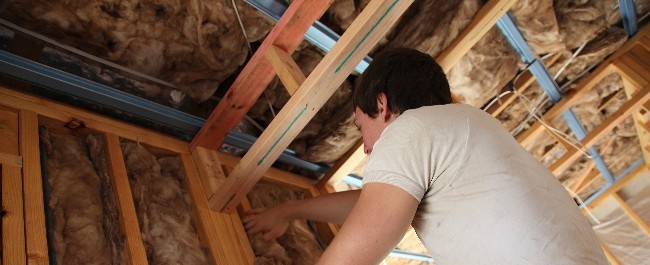How the Great British Insulation scheme can help the most vulnerable

The improved energy efficiency of UK homes is one of the key strategic priorities of the newly-created Department for Energy Security and Net Zero (DESNZ).
In March 2023, DESNZ announced the ‘Great British Insulation’ scheme to upgrade the UK’s least energy-efficient homes. The ramping up of such policies can promise numerous benefits – driving energy transitions, allowing new security of supply, and tackling energy poverty and its associated health impacts.
Energy poverty occurs when household bills cost so much that, once paid, a household’s leftover income is below the official poverty line. At one point in 2022, it was estimated that rising energy prices would push over 8 million people into energy poverty.
About the research
Policy Recommendations
- Consider energy poverty in parallel to decarbonisation to ensure restorative justice in the design and implementation of energy efficiency.
- Focus interventions to be place- and context- specific to account for the geographies in energy poverty.
- Recognise property characteristics and tenure as important variables in addition to income.
- Policies to reach, influence, and support private rental properties (through both the property owner and tenants) to improve energy efficiency.
- Interventions to support those with health problems or disabilities that require energy use. A wider roll-out of the National Health Services’ prescription of warmth to patients in 2022 would go some way to supporting those vulnerable.
- Multidisciplinary work that combines a conceptual approach to restorative justice with statistical approaches to energy poverty. An approach of restorative justice remains primarily conceptual. There remains a need for this work to be fused into a comprehensive approach that uses official information to trace and forward key interventions.
Key Findings
Energy efficiency measures are being promoted as a key climate-friendly economic stimulus. Energy price rises impact those living in poorly-insulated homes the most. The UK’s housing stock is the leakiest in Europe: losing an average of 3°C of heat over 5 hours, compared to 1.5°C in Italy and 0.9°C in Norway.
Certain groups, types of housing, and neighbourhoods are more affected by energy poverty than others. ONS-published data shows that those experiencing depressive symptoms or living in the most deprived areas were more likely to have found it difficult to keep warm this winter. Younger adults were also more likely to struggle than those aged over 65.
To ensure that energy efficiency interventions have a restorative justice approach that benefits those most in need, future policies should be targeted. The following are specific areas that should be considered for future DESNZ energy efficiency policies:
- Households with pre-payment meters: Approximately 4 million people in the UK use prepayment meters (PPM) for energy, with 600,000 added in 2022. Higher PPM rates led to 3.2 million households going without energy at some point in 2022 due to being unable to pay the costs.
- Private rental properties: An estimated one in five households in England live in private rental properties. 11% of privately-rented homes reported problems with damp in 2021 – a number that may well increase. Tenants often require permission from landlords to install new measures, and landlords may be less likely to invest in such measures.
- Inter-war housing: The 3.3 million homes built between 1918 and 1939 require targeted intervention, with 17% of households in these inter-war suburbs being in energy poverty. These houses are also responsible for an estimated 12% of England’s total carbon emissions.
- Those with long-term health problems or disabilities: People who rely on electricity for at-home medical equipment or mobility aids are affected by energy poverty due to the need for secure, continuous supply.
- Social housing: This sector accounts for 17% of households in England. Social renters are those on the lowest incomes, are more likely to report being in rent arrears, and are less likely to have savings. Over half reported a household member having a long-term illness or disability.
By targeting these areas, future policies can ensure greater energy efficiency while benefiting those most in need.
